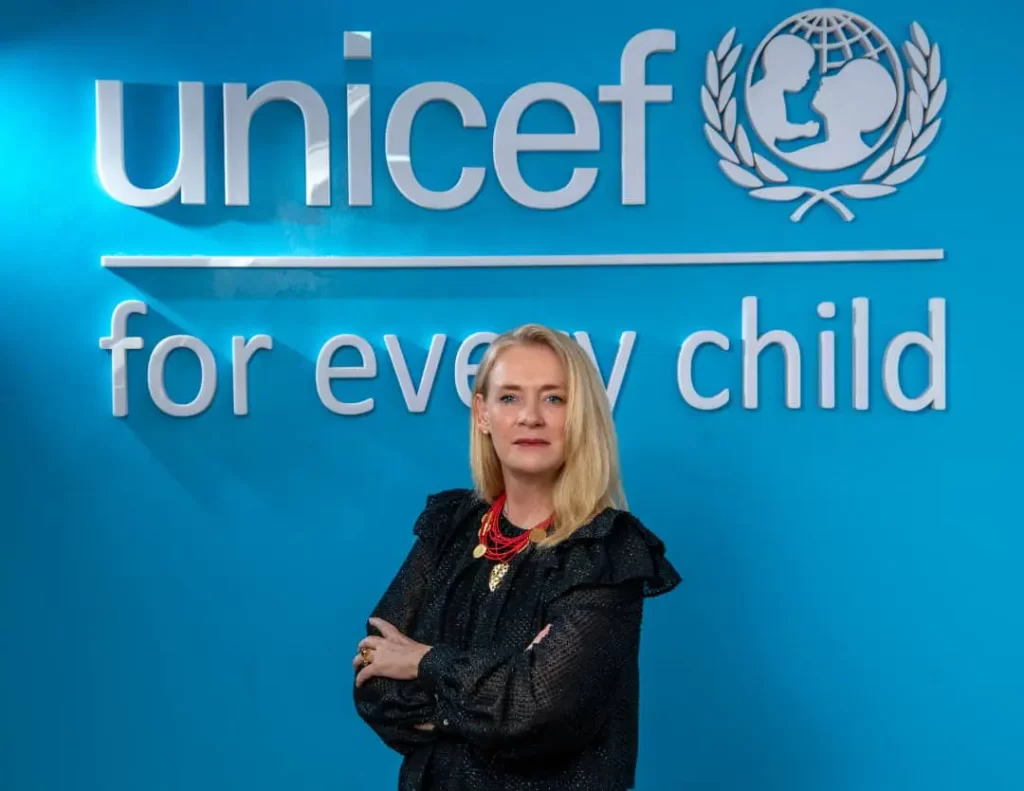The United Nations Children’s Fund (UNICEF), in collaboration with the International Labour Organization (ILO) and with funding support from the European Union (EU), on Monday launched the Supporting Sustainable Social Protection Systems in Nigeria (SUSI) project in Oyo State, warning that millions of vulnerable residents, especially children, are still excluded from existing social welfare schemes.
Speaking at the official launch held at the Local Government Staff Training Centre, Secretariat, Ibadan, UNICEF’s Chief of Lagos Field Office, Celine Lafoucriere, described social protection as “a lifeline, not a luxury,” stressing that urgent investments were needed to expand coverage for poor households across the state.
According to her, 48.7 per cent of Oyo State’s population remains multidimensionally poor, while a staggering 72.7 per cent of children aged 0–17 are living in poverty.
She noted that only 11 per cent of the poor and vulnerable are captured in the state’s social registry, with just 2 per cent currently receiving any form of social assistance.
“This means the majority of children, women, the elderly, and people living with disabilities are left without any safety nets. The urgency for improved investment in social protection is now,” Lafoucriere declared.
The UNICEF official, who represented the UNICEF Nigeria Country Representative, Saeed Wafaa, commended Oyo State for initiating a Social Protection Policy, establishing a Social Protection Coordination Department, and introducing programs such as free basic education, a homegrown school feeding scheme, and the Oyo State Health Insurance Scheme.
She, however, stressed that despite these milestones, “strategic, operational, and technical challenges” were still limiting coverage for the most vulnerable.
The SUSI project, Lafoucriere explained, is designed not only to strengthen Oyo State’s social protection framework but also to enhance its “shock-responsiveness,” integrate financial mechanisms into state budgets, and build sustainable structures that can withstand economic disruptions.
“What excites me most is that this project is not just about systems and structures; it is about ensuring that every child grows up safe and protected, every family has access to essential services, and every community can withstand shocks when times get tough,” she said.
Lafoucriere assured that UNICEF and its partners would continue to work closely with the state government to scale up interventions, strengthen institutions, and ensure effective partnerships that guarantee social safety nets for vulnerable households.
The Oyo State Government was represented by senior officials, policymakers, and civil society stakeholders who pledged their commitment to implementing the program in line with global best practices.
Do you want to share a story with us? Do you want to advertise with us? Do you need publicity for a product, service, or event? Contact us on WhatsApp +2348183319097 Email: platformtimes@gmail.com
We are committed to impactful investigative journalism for human interest and social justice. Your donation will help us tell more stories. Kindly donate any amount HERE




